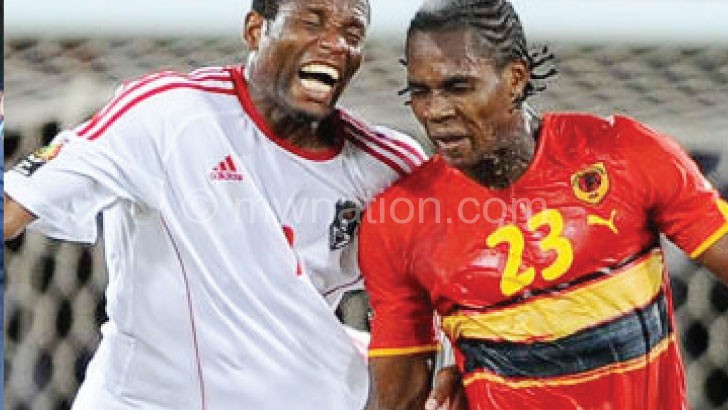How Fifa exposed Flames’ match fixing
“My dear brother, I have good news for you. I have an idea whereby each player in the Malawi team who play Burkina Faso will make $15 000 [about K11.7 million]. I can only pay five players and I want only the back line players—goalkeeper, three defenders and one defensive midfielder.”
This is the story that shocked the nation in 2019 as far as football is concerned.

A damning report from Fifa exposed how Malawi national football team players allegedly fixed matches with former Flames midfielder Hellings Mwakasungula at the centre of the controversy.
The mastermind of the syndicate was none other than convicted Singaporean agent Wilson Raj Perumal, who boasts of manipulating over 100 games and has now become Fifa witness in an extensive investigation by Interpol and Federal Bureau of Investigation (FBI).
His confession and e-mails discovered on his laptop revealed how he manipulated Malawi national team games between 2008 and 2011, including the 2010 African Cup of Nations (Afcon) qualifiers and at the actual tournament in Angola.
According to Perumal and Fifa, Malawi players pocketed up to $360 000 (about K268 million) from a match-fixing syndicate, with mostly defensive players involved.
Perumal promised to fix the match between Ivory Coast and Guinea so that the result would allow Malawi to qualify to the finals in Angola.
“Ivory Coast will beat Guinea by 4-0. I have the right people to do the job. I will come to see you in Burkina on the November 12th,” he told the defending midfielder.
Indeed Ivory Coast went on to beat Guinea 3-0 while Malawi gave away their game against Burkina Faso 1-0.
Just as Perumal promised, Malawi and Burkina Faso qualified for the Afcon finals while Ivory Coast qualified for the South Africa World Cup.
At 2010 Afcon held from January 10 to 31, Malawi beat Algeria in the opening match, but suffered inexplicable 2-0 and 3-1 losses to Angola and Mali in the following matches.
After the 2010 Afcon, Perumal continued influencing Malawi matches through players on his pay roll.
Former FAM general secretary Charles Nyirenda, who was with the team in Angola, confessed having spotted Perumal at the hotel Malawi was booked, but said did not suspect anything sinister.
Yet he was aware of the presence of the agent who was a suspected match fixers, having also seen the same agent during the Flames home Afcon qualifier against Guinea at Kamuzu Stadium.
“I noticed the man there, but I didn’t want to have anything to do with him because even when he came to Malawi to watch the match between Flames and Guinea, I didn’t want to stay long with him. By then, I was already aware of match fixers and their agents,” he said.
When asked if seeing the agent again at the Flames hotel, having seen him again in Blantyre did not raise a red flag to warn the coach and his backroom staff, Nyirenda said he had faith in the players not to sink low to betray their country.
He explained: “Of course, seeing him at our hotel was a surprise, but because there were other guests at the place apart from ourselves, I just felt he had come to watch the Afcon matches.
But Flames coach at Angola Afcon finals Kinnah Phiri said he suspected match-fixing all along.
“The news was not surprising to me because I noticed some of the mistakes the boys made at the Afcon were deliberate. Beating Algeria 3-0 gave us hope that we would go through, only to lose painfully against Mali and Angola.
“But as a coach, it was not necessary for me to confront the players on my suspicion. Otherwise, I felt bad and hurt when the news broke because that was our chance as a country to raise our flag high,” Kinnah recalled.
FAM’s response to the allegation was that of utter shock and disappointment.
The association’s general secretary Alfred Gunda said FAM would take steps to ensure there is no repeat of the case which dented Malawi football.
“We would like to warn all stakeholders that FAM just like Fifa will fight all forms of match manipulation. We will strive to uphold the integrity of the game as emphasized by Fifa,” he said.
“It’s not easy to get evidence of match manipulation. We already engaged other stakeholders such as Anti-Corruption Bureau to help us fight match fixing because they have the expertise,” he said. But despite the overwhelming evidence, which led to Mwakasungula being banned for life, the former Silver Strikers player still maintains his innocence.


